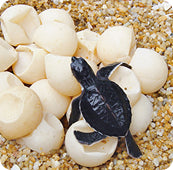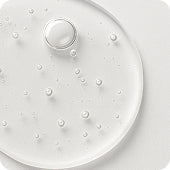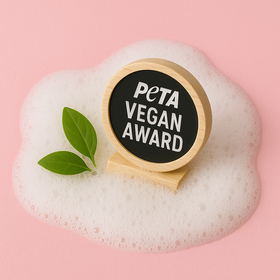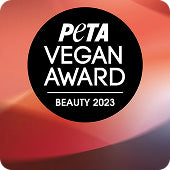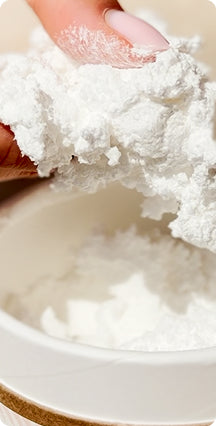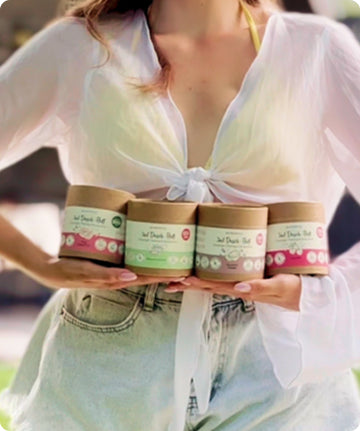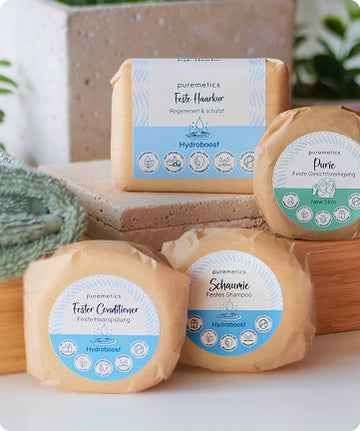How is soap actually made? A detailed guide and comparison of the methods
How is soap actually made? A detailed guide and comparison of the methods

In our last post, we talked about the history of soap. But how is it actually made today and is soap the same as soap? We'll clear things up and provide clarity. Soap is an everyday product that we use every day, but many people don't know how it is actually made. In this blog post, we will explain the different methods of soap making, show their advantages and disadvantages, and examine which method is the best.
Basics of soap making
Before we dive into the different manufacturing methods, it's important to understand the basics of soap making. Soap is created through a chemical process called saponification, in which fats or oils react with a lye (sodium hydroxide or potassium hydroxide). This process produces glycerin and soap salts, which together form the finished soap.
Cold process soap making

Cold process soap making is a traditional method where the fats and oils are mixed with the lye at room temperature. Here are the steps and pros and cons of this method:
- Weighing fats and oils: First, weigh the desired fats and oils.
- Prepare lye: Sodium hydroxide is carefully dissolved in water.
- Mixing: The lye is slowly added to the fats and oils and stirred continuously until the mixture thickens (this state is called "trace").
- Pouring and curing: The soap mass is poured into molds and must harden for several weeks.
Advantages:
- Cold process soap making allows for great creative freedom in the choice of ingredients and fragrances.
- The process preserves the natural properties of the oils and fats used.
- The glycerin it contains has a moisturizing and nourishing effect on the skin.
Disadvantages:
- The curing process takes a long time (at least 4-6 weeks).
- Handling lye requires caution and experience.
Hot process soap making

Hot process soap making is similar to the cold process method, but the mixture is additionally heated to speed up the saponification process:
- Weigh and mix fats and oils: The desired fats and oils are weighed and mixed.
- Make lye: Sodium hydroxide is dissolved in water.
- Mixing and heating: The lye is added to the fats and oils, and the mixture is stirred under heat, often in a slow cooker.
- Pouring and hardening: The finished soap mass is poured into molds and can be used immediately after cooling.
Advantages:
- Shorter curing time compared to the cold process method.
- The finished soap can be used immediately.
Disadvantages:
- The process can be messy and requires constant monitoring.
- The texture of the soap is often coarser than with the cold process method.
- Some valuable care ingredients are destroyed by heating.
Melt and pour soap production

In this method, finished soap base is melted and then enriched with colors, fragrances and other additives before being poured into molds.
- Melting soap base: A ready-made soap base is melted in the microwave or in a water bath.
- Add additives: Colors, fragrances and other additives are added.
- Pouring and curing: The mixture is poured into molds and only needs to cure briefly.
Advantages:
- Very easy and safe to use, ideal for beginners.
- Quick and easy.
Disadvantages:
- Less control over ingredients as a ready-made base is used.
- May be less natural depending on soap base used.
- May be less nourishing depending on the soap base used.
What is the best method if I want to make my own soap?

Choosing the best manufacturing method depends on your individual needs and preferences:
- For beginners: The melting and pouring method is ideal because of its simplicity and safety.
- For creative freedom: The cold process method offers the greatest flexibility in choosing and adjusting ingredients.
- For fast results: The hot process method allows the soap to be made and used more quickly.
And what is the best manufacturing method when I buy my soap?

At puremetics, we have chosen cold-churned and cold-pressed soaps. They are often considered the best for a variety of reasons related to their manufacturing method, ingredients and the resulting benefits for the skin and the environment. Here are the main reasons why these soaps are so highly valued:
Gentle processing
- Preservation of natural ingredients: Both methods, cold-stirred and cold-pressed, avoid high temperatures during the manufacturing process. This preserves the valuable natural ingredients such as vitamins, minerals and antioxidants in the oils and fats used. These ingredients remain intact and offer the skin maximum care.
- Handcrafted quality: Many of these soaps are produced by small, artisanal manufacturers who place great emphasis on quality and sustainability. Purchasing such soaps supports local and small businesses and promotes sustainable practices.
Natural moisturizing
- Glycerin: During the saponification process (saponification), glycerin is created as a byproduct. Glycerin is an excellent humectant that attracts moisture from the air and binds it to the skin. Cold-cured and cold-pressed soaps retain all of the natural glycerin, resulting in better hydration of the skin.
Diversity and adaptability
- Custom Recipes: Both methods allow the use of a variety of natural oils, fats, essential oils and other additives. This allows the creation of soaps specifically tailored to different skin types and needs, from dry to sensitive skin.
- Creative Freedom: These manufacturing methods allow soap makers to develop creative and personalized soaps that are both functional and aesthetically pleasing.
Skin-friendliness
- Gentle cleansing: The natural ingredients and glycerin ensure that the soaps gently cleanse the skin without drying it out or irritating it. This makes them particularly suitable for people with sensitive skin or skin problems such as eczema and psoriasis.
environmental friendliness
- Sustainable practices: Many cold-pressed soap manufacturers place great emphasis on sustainable and environmentally friendly production methods. They often use organic and fairly traded ingredients and avoid synthetic additives and plastic packaging.
- Biodegradable: These soaps are made from natural ingredients that are easily biodegradable and have less impact on the environment than synthetic cleaning products.
- Long shelf life: Cold-cured and cold-pressed soaps continue to harden over time, increasing their shelf life. These soaps are often more concentrated and last longer than industrial soaps, making them more sustainable.
Summary

Cold-pressed and cold-cured soaps offer a variety of benefits that make them the preferred choice for many people. The gentle processing preserves the nourishing properties of the natural ingredients, the glycerin included provides additional moisture, and the ability to customize the recipes allows for the creation of soaps that are specifically tailored to the needs of the skin. In addition, these soaps are environmentally friendly and support sustainable and ethical manufacturing practices. Overall, cold-cured and cold-pressed soaps offer a high-quality, skin-friendly and sustainable option for daily skin care.





